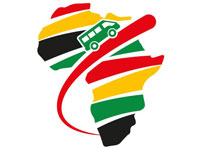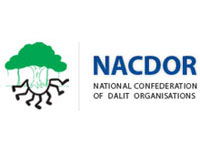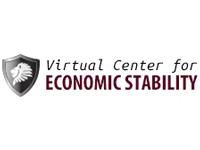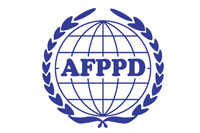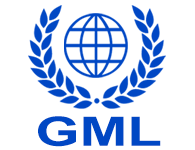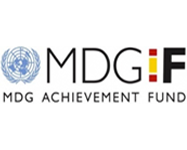Why Citizens’ Feedback?
Significant gains have been achieved on the Millennium Development Goals (MDGs), a set of eight time-bound goals on poverty, education, gender equality, health and environment. However, much more still needs to be done. The Philippines is at risk of not meeting goals on education, maternal mortality and HIV and AIDs. Whatever progress that has been made has been uneven and has not reached those most in need. While MDG-centered programs and policies have been put in place, there is a need for more efficient, accountable and transparent delivery of services.
With only less than four years left to the 2015 deadline, acceleration of MDG progress needs to be put at the forefront. Citizens’ feedback has been identified as a powerful force in contributing to this effort. By providing citizens an accessible tool through which they can make their voices heard, they can become active partners of government, demanding accountability for services which will ultimately benefit them.
Tingog 2015: Citizen Action for Governance
The citizen feedback tool is both a technological tool and a strategy. Technology, mainly in the form of SMS and web, is used to give ordinary people an easy tool to directly provide feedback or complaints to the government and receive immediate corrective response. The strategy involves bringing together communities, civil society groups, local government and media to ensure that the most pressing issues are identified and immediately and properly addressed.
In the Philippines, the initiative has been localised using the brand “Tingog 2015.” Tingog is a Bicolano and Cebuano word for ‘voice’, to emphasize that this initiative is intended to provide ordinary citizens with a voice in the development process. 2015 refers to the short code to which the citizens will send their text messages. A beta version of Tingog was launched in Albay on October 17, 2011 in celebration of the International Day for Poverty Eradication. Another pilot in Agusan del Sur will also be launched.
The Tingog 2015 platform can be accessed at: www.tingog.ph.
Tabaco pilot platform: http://tab.tingog.ph/
Agusan del Sur platform: http://ads.tingog.ph/
Tingog 2015 technology
The Tingog 2015 platform – a web portal that interacts with mobile technology, in particular SMS – allows citizens to text their reports or complaints to a four-digit access code, 2015, using any mobile phone or carrier. These messages are then automatically transmitted to the Tingog 2015 website, which sorts the data and forwards them to the concerned government agencies, giving the latter a reasonably acceptable amount of time within which to respond. To ensure the integrity of the system, a reputable civil society partner will be given full view of the system. At the same time, a comprehensive media and communications strategy will make sure that public servants are either pressured or inspired to respond with dedication and with a sense of urgency.\

Tingog 2015 follows this process:
- Concerned citizen sends a text report to 2015 or logs on to the website to submit a report.
- He/ she receives an autoresponse confirming receipt of the report and receives a unique report number.
- All reports are received by a dispatcher who then forwards the reports to the concerned office through the Tingog 2015 web-based platform.
- Concerned offices then receive the reports through their dashboard and assign staff to follow through and respond to the report.
- Once reports have been resolved, citizens are provided with an update. For reports which cannot be resolved immediately, citizens are informed accordingly.
- Citizens can text whether or not they are satisfied with the response. If not, the cycle begins again.
The Tingog 2015 platform has the following features:
Public users
- User-friendly website that contains all resources and news updates pertaining to the initiative
- SMS-based reporting to ‘2015’ or web-based reporting
- Automatic updates sent to the mobile phone or email addresses of reporters
- Summary reports showing total number of reports received and responded to
- Map showing the bulk of feedback per location

Government and civil society users
- Dashboard function for government and civil society focal points with various levels of user permissions and access
- Database system that tracks the level of response for each report, such as (a) dispatched, (b) in process, (c) unable to respond due to X reason, (d) resolved, (e) closed
- Transactional and aggregated reports for data analysis

Two Initial Pilots in Albay and Agusan del Sur
Tingog 2015 is being tested in two areas in the Philippines – Tabaco City, Albay and the municipalities of Bunauan and San Francisco in Agusan del Sur. During this test period, the range of reporting will be limited to one or two general issues, with focus on the common issues, complaints and feedback associated with them. The Tabaco pilot is focusing on a range of health programs related to MDGs 4 & 5 such as reproductive health, nutrition and immunization. The Agusan del Sur pilot will focus on youth, education, employment and entrepreneurship issues.
The beta version of Tingog 2015 was soft-launched in October 17, 2011 in celebration of the International Day for Poverty Eradication in Tabaco, Albay. Tingog 2015 was launched by the city’s Mayor Krisel Lagman-Luistro, with the presence of Secretary of Interior and Local Government Jesse Robredo, WHO Country Representative Soe Nyunt-U representing the UN Philippines, 2010 Ms. Universe 4th Runner- Up and talk show host Ma. Venus Raj, who agreed to be Tingog’s spokesperson, and Social Watch Philippines co-convenor Jessica Cantos, all representing the multi-stakeholder partnerships forged for the initiative. The beta version was tested for 3 months, results of which are being used as inputs to refining the program design and building a full version of Tingog 2015 The development of the new system is underway and is awaiting complete integration with ‘2015.’
Tingog builds on a multi-stakeholder partnership among local government officials, ordinary citizens, civil society and the media. To ensure the participation and support of the community for Tingog 2015, civil society groups from both Tabaco and Agusan del Sur are undergoing continuing capacity building to develop a claimholding and development-partner mindset.
A communications and advocacy strategy is also being rolled out with the aim of incentivizing the public to send feedback and encourage local government to respond immediately.
A monitoring and evaluation (M&E) system is being developed, in order to provide a measurable and verifiable means of evaluating the relevance and effectiveness of the system.
At the end of the pilot process in both Albay and Agusan del Sur, it is envisaged that a replication guide for roll-out to LGUs, including training manuals and the software itself, will be turned over to the Department of the Interior and Local Government and the House of Representatives, with the hope of it becoming a necessary and practical monitoring and feedback tool for local development planning.
Achievements to Date
(1) Tingog is the first feedback system in the country that brings together the private sector, civil society, media and the government.
- Globe, Smart and Sun have all agreed to provide the ‘2015’ short code for a charge of only 1 Php per text. This is a first in the history of the telcos.
- Civil society organizations have been given full viewing rights to the system. They are able to see all reports received, actions taken, pending reports, and be able to generate summary reports and analysis.
- Media will be provided with success stories on Tingog to encourage citizen reporting and excellent performance of service providers.
(2) Tingog has given voice to citizens and empowered them to become active partners in governance.
- Tingog is introduced to change citizens’ mindsets from that of resignation to that of empowerment.
- With the anonymity that text messaging provides, citizens are now more encouraged to speak up on issues relating to service providers.
(3) Tingog has cultivated a service-oriented attitude and contributed to a culture of accountability among local government and service providers.
- Even without receiving reports, the set-up of Tingog itself has encouraged local service providers to improve their services and attitude towards clients.
- At the same time, local officials expressed appreciation for positive feedback received through Tingog.

